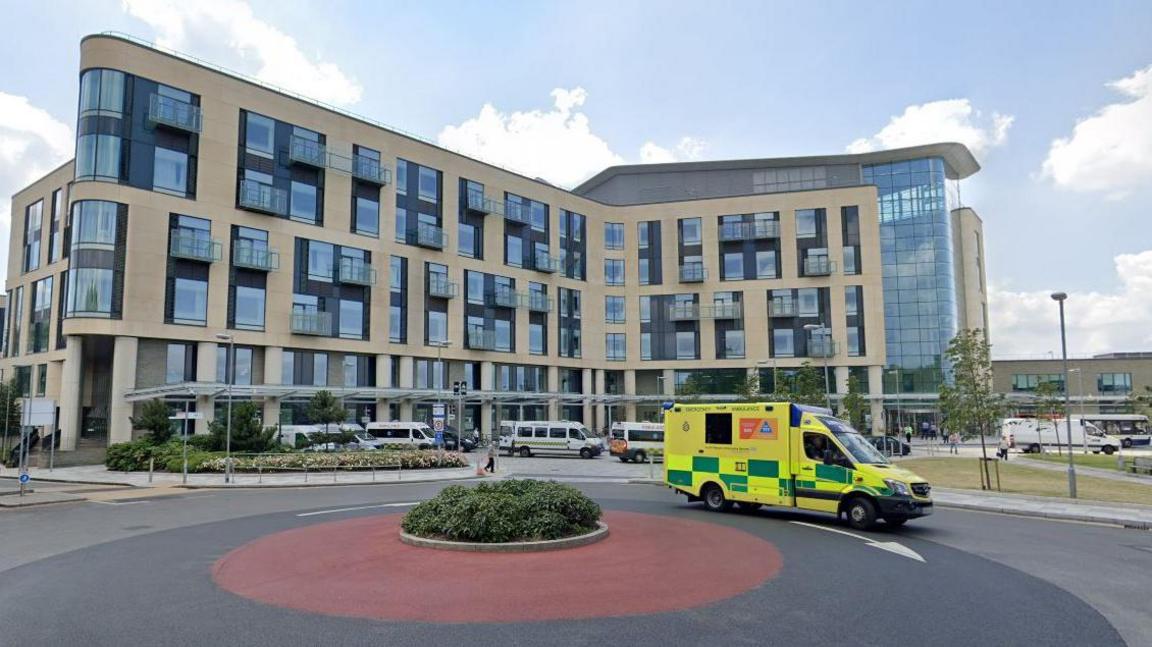'Better patient outcomes' if hospital trusts merge
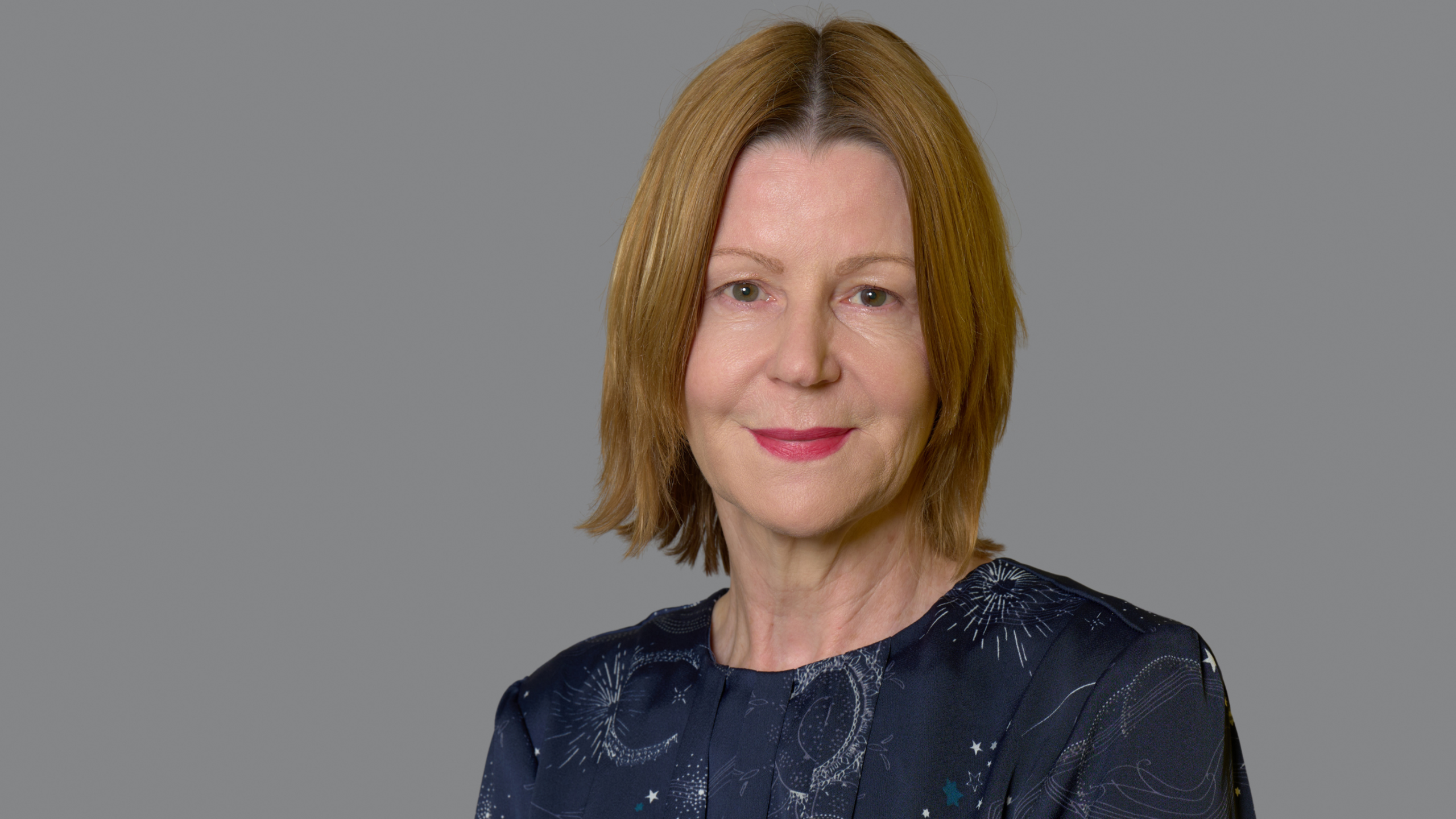
Maria Kane says she hopes the merging two hospital trusts will result in 'better outcomes' for patients
- Published
A potential merger between Bristol's hospital trusts could create one of the biggest healthcare organisations in the UK, says its chief executive.
Maria Kane, head of both North Bristol NHS Trust and the University Hospitals Bristol and Weston (UHBW) NHS Foundation Trust, says operating as a single organisation will result in "better outcomes" for the 1.5 million patients the two trusts serve.
The merger would reduce the duplication of services and possibly lead to an expansion of services at Southmead Hospital.
Ms Kane said: "I have seen huge appetite from our clinicians to want to come together around what's best for patients."
The North Bristol NHS Trust runs sites including Southmead Hospital, while UHBW runs the Bristol Royal Infirmary (BRI), St Michael's, Bristol Children's Hospital, Weston General Hospital and more.
The potential partnership between the two trusts would strengthen collaboration across Bristol, North Somerset and South Gloucestershire.
Breast screening trial hopes to find cancers earlier
- Published28 July
'A charity gave my son a childhood in hospital'
- Published22 July
Ms Kane explained she has discovered a wide variation in outcomes for some of the 44 services that are duplicated on both sites, including cardiac care.
"One of our clinicians talked about the unfairness of getting in an ambulance and being very worried about whether it would turn left or right, because they knew the outcome could be very different," she added.
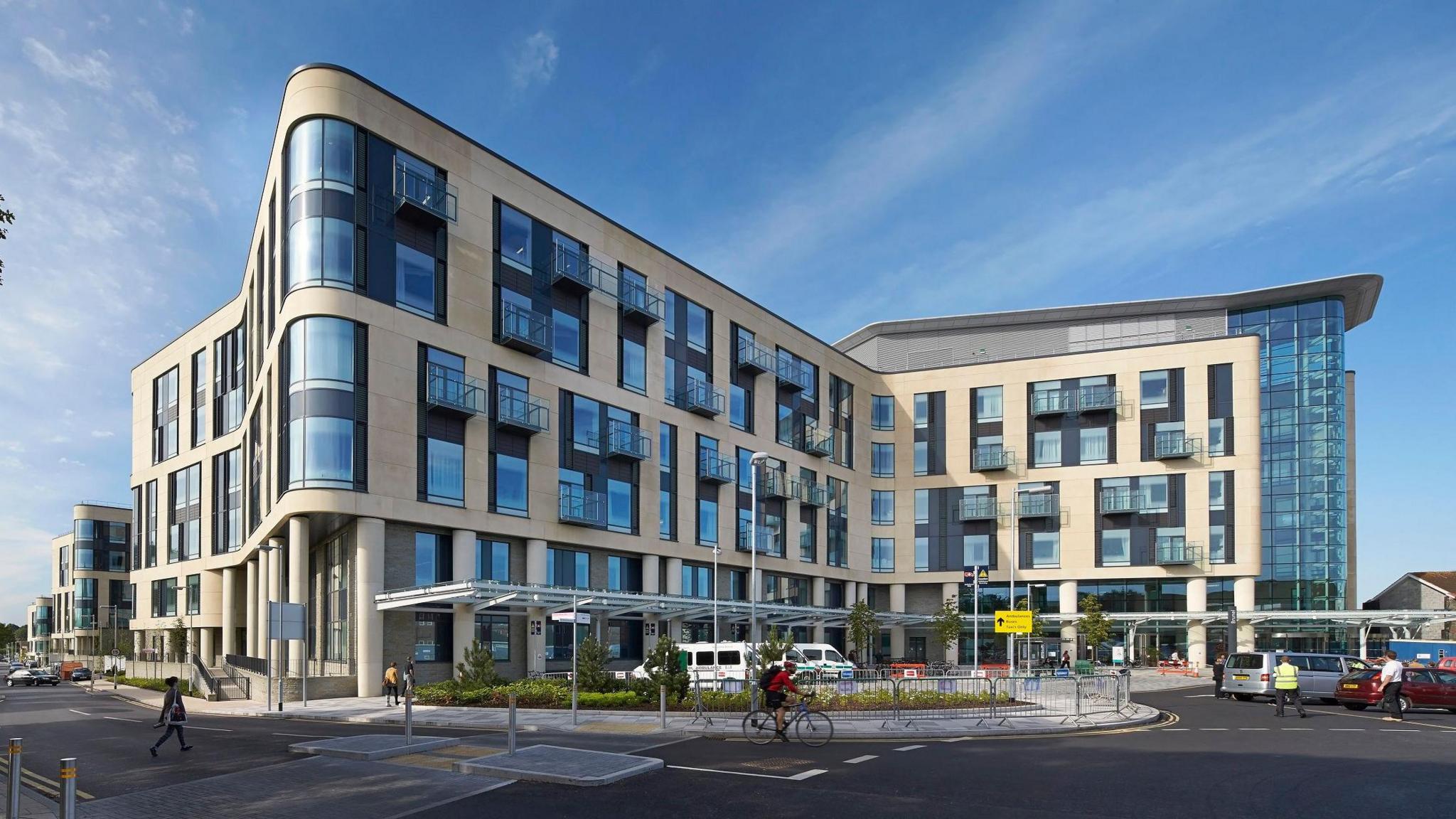
The merger could see an expansion of services at Southmead Hospital
Ms Kane said she hoped the possible merger will create one of the biggest hospital trusts in the UK, second to Manchester which employs more than 28,000 health professionals, and may result in an expansion of services in Southmead.
"We are setting up a community participation group because whatever we do has to align to need and be acceptable to local people, which we have to do with a finite budget," she added.
Ms Kane said the trusts would be assessing how demand for inpatient services should dictate how different buildings are used, but said she acknowledged people would still like to access services in the city centre.
Different waiting lists
The trusts are already working closely in specialties including cardiac services - where waiting lists for some minimally-invasive heart procedures are nine months at Southmead, compared with just six weeks at the BRI.
Both trusts are using a private company to send mini stick-on heart monitors to patients at home, which they can post back to get a result within just two weeks.
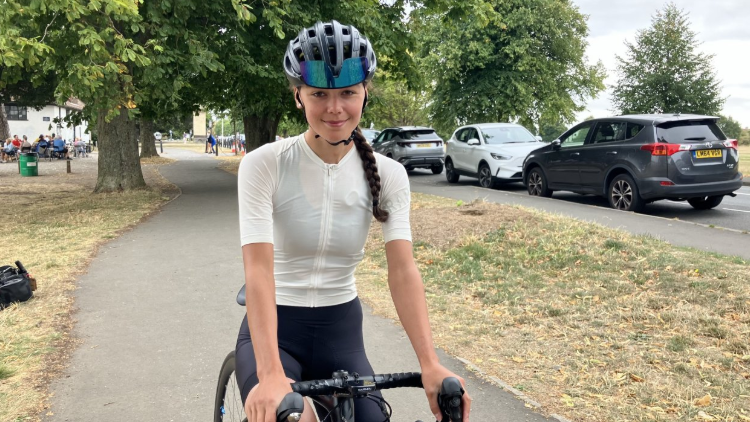
Competitive cyclist Katherine Barnes is receiving remote monitoring for her irregular heartbeat
University of Bristol student Katherine Barnes has benefitted from the closer working relationship between both hospital trusts.
She was diagnosed with an irregular heartbeat earlier this year, and is one of the patients who has used a patch monitor.
The 21-year-old competitive cyclist said: "I had been having arrhythmias off and on for about 10 years, but it came on really suddenly during one of the biggest races of the season and so I had to pull out.
"I received the patch in a recent appointment and I just sent it back to them and they analysed the data for me."
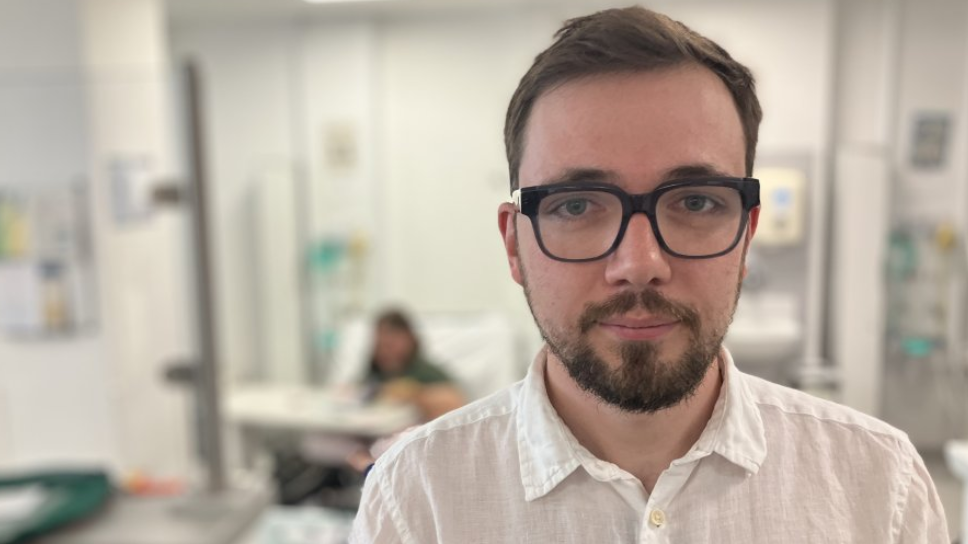
Richard Betteridge hopes to go on a clinical trial to find a cure for a rare kidney disease
The merger is also improving collaborations in research, including a potential cure for the rare kidney disease, IgA nephropathy, external.
Professor of paediatric nephrology at UHBW, Moin Saleem, is teaming up with clinicians from Southmead to start a world-first study using gene therapy, which uses a virus to introduce genetic material into the IgA cell to cure them of the disease.
"The significance we hope will be pretty huge because at the moment there is no curative therapy for this disease," said Prof Saleem.
"If this switches off the disease then those patients will be able to avoid dialyses completely."
Richard Betteridge has IgA nephropathy and hopes to go on the trial.
The 32-year-old said: "It really does give you that sense of hope that there's something you can do, and you are also contributing to advancing the science around the management of this condition."
Following the Government's 10-year plan, announced in July, a network of local health hubs will be created and Ms Kane added this move will allow them to transfer services to community health hubs, creating opportunities for staff to build new relationships and broaden skillsets.
Southmead and UHBW is already seeing an extra 70,000 patients a year through two community diagnostic centres in Cribbs Causeway and Weston-super-Mare and the long-term plan is for more patients to be seen and treated closer to home.
Get in touch
Tell us which stories we should cover in Bristol
Follow BBC Bristol on Facebook, external, X, external and Instagram, external. Send your story ideas to us on email or via WhatsApp on 0800 313 4630.
- Published24 June
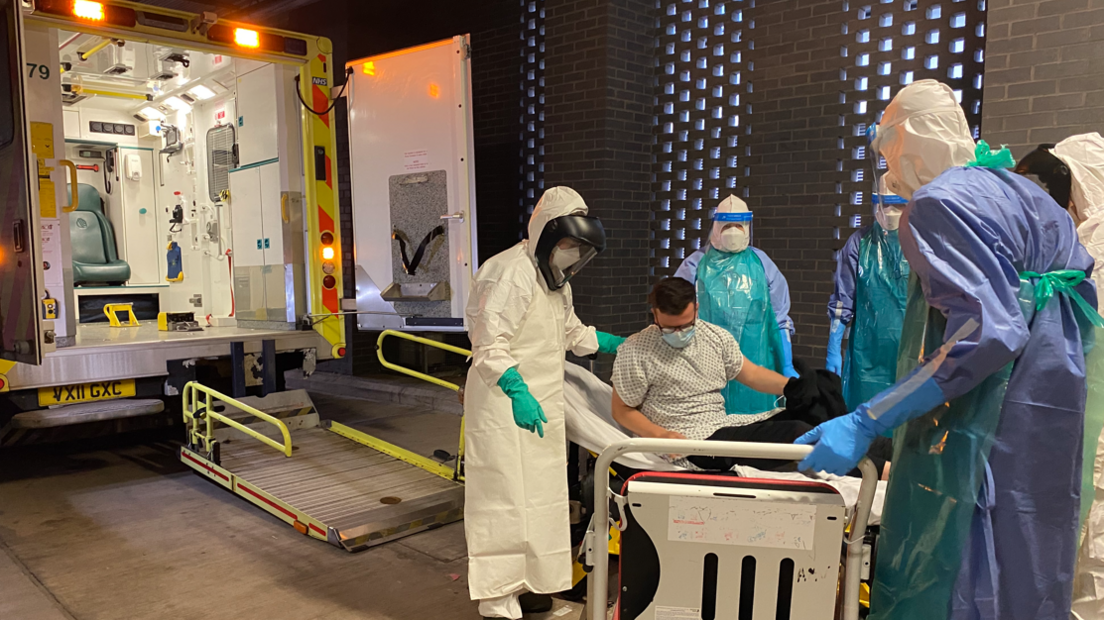
- Published3 December 2024
